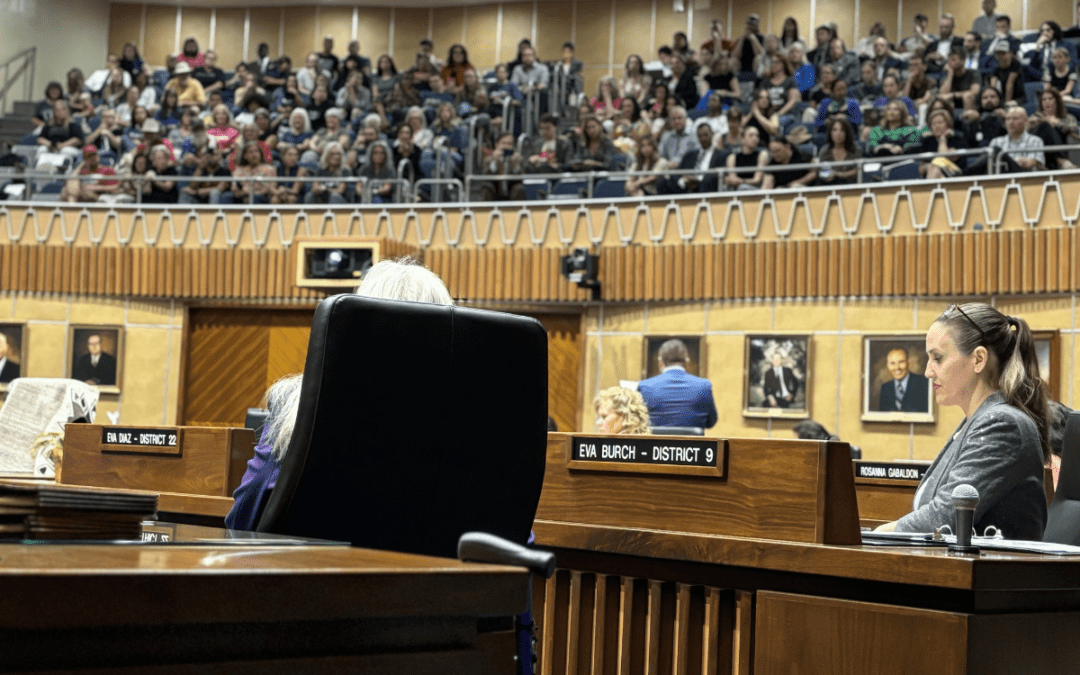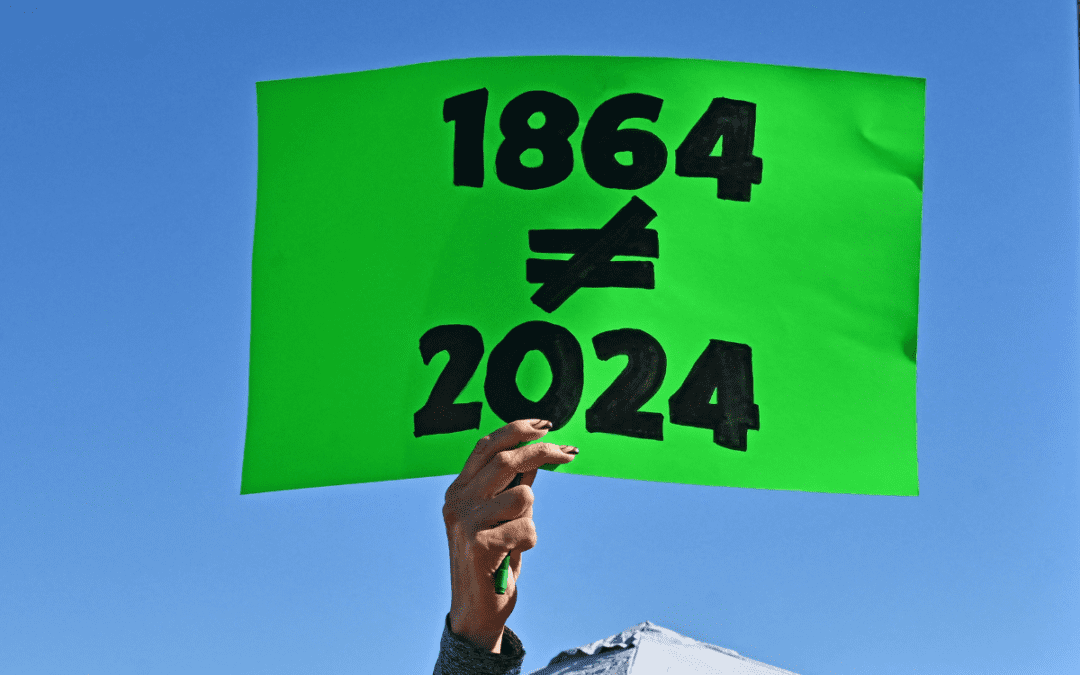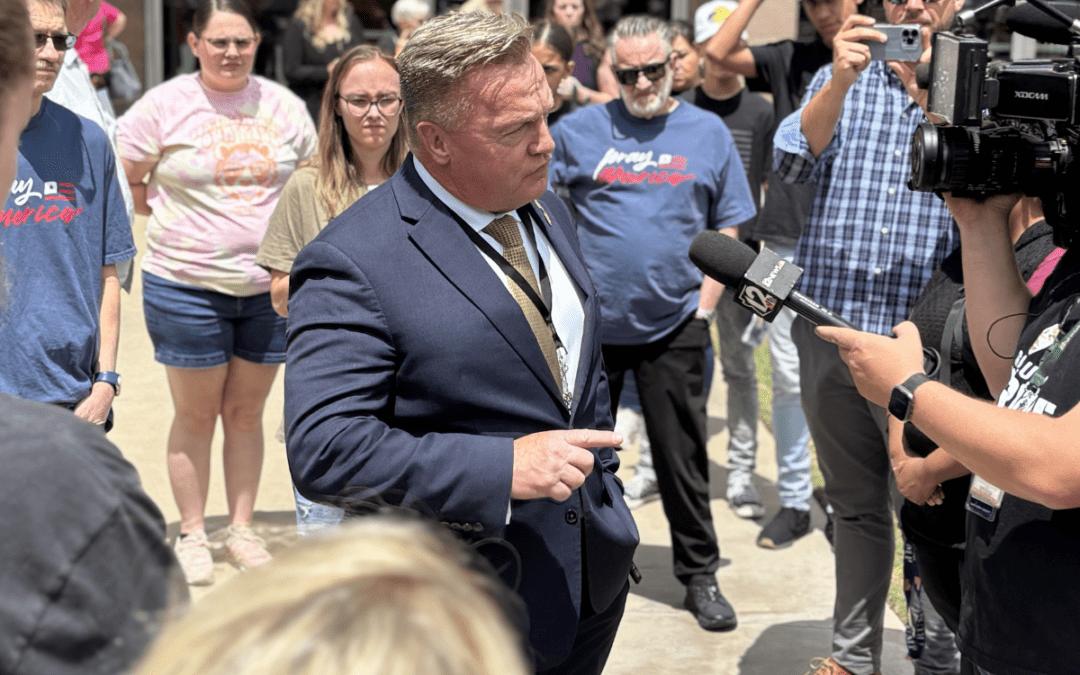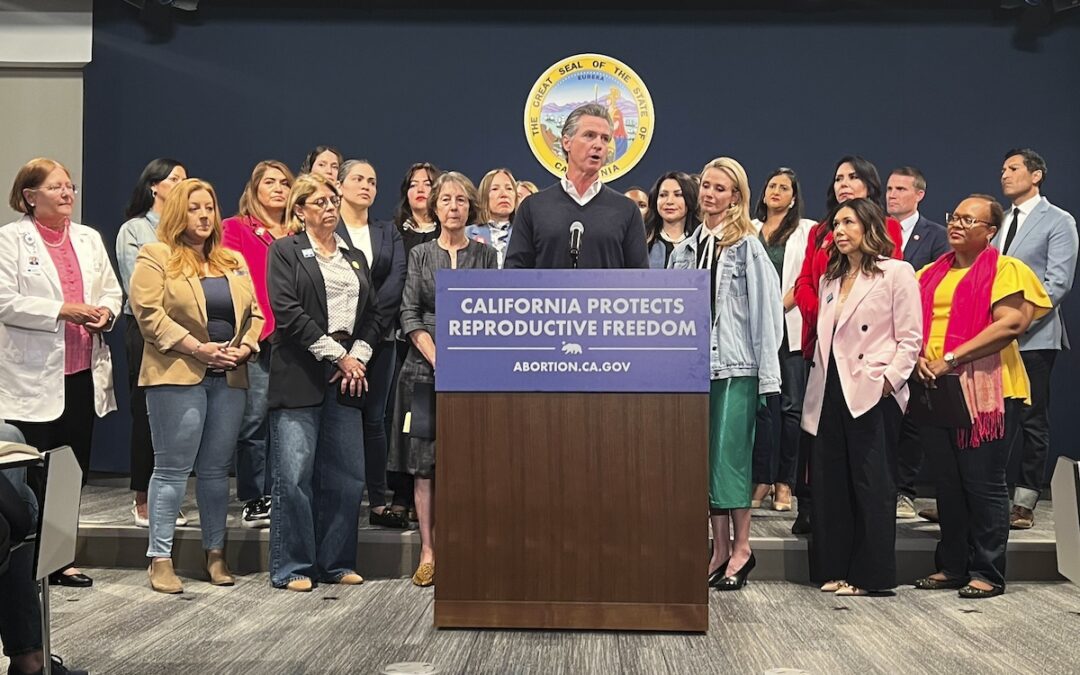
Protesters rally Tuesday, June 2, 2020, in Phoenix during demonstrations over the death of George Floyd, a black man who died after being restrained by Minneapolis police officers on May 25. (AP Photo/Matt York)
The proposed budget only allocates $400,000 to civilian oversight efforts, compared to the $3 million supporters say they need.
Activists are calling for the city of Phoenix to put more funding into civilian oversight of police and slash at least a quarter of the department budget, which is proposed to be more than $700 million in recent budget drafts.
“What we’re seeing is that the councilmembers and Mayor Gallego are not interested in the pain and grief and the anger of thousands of Phoenix residents, and they have the opportunity to show up for us,” Parris Wallace, director of the Black Phoenix Organizing Collective, told The Copper Courier.
Protesters have been marching daily in the Phoenix area over the death of George Floyd in Minneapolis, reigniting conversations about racism and excessive use of force in the Phoenix Police Department.
Funding based on community needs
Wallace said her group and others are asking the City Council as it meets Wednesday to defund the police department by 25% and move that money into community programs. The current budget proposal would give police about $745 million, a nearly $25 million increase from last year’s budget. Wednesday’s vote is for a tentative adoption of the budget proposal, while the final vote will be June 17.
“They are not passing a budget that is prioritizing health communities,” Wallace said. “They’re not prioritizing accountability measures.”
From Minneapolis, Minnesota—which served as the lynchpin for the protests—to Los Angeles and everywhere in between, activists, organizers, artists, writers, and ordinary citizens have repeated the call to defund police departments. The movement is clearly breaking through, as Google searches for the phrase have skyrocketed in the past week.
But what does it actually mean to defund the police?
Redistribution of tax dollars
First things first: Though the two are often confused for one another, it is not the same as abolishing the police (though there is some overlap among supporters of the two ideas). Instead, defunding the police means reducing city police department budgets—which are exorbitantly high and in some cities make up as much as 30% of the entire city budget—and redirecting those funds to other programs, such as health care, education, housing, and other programs which have been defunded or underfunded for decades.
As Brooklyn College sociology professor Alex Vitale pointed out in an op-ed in the New York Post, “New York City spends more on policing than it does on the Departments of Health, Homeless Services, Housing Preservation and Development, and Youth and Community Development combined.”
This reality is not lost on the activists and organizers behind the Defund the Police movement.
“Policing and militarization overwhelmingly dominate the bulk of national and local budgets. In fact, police and military funding has increased every single year since 1973, and at the same time, funding for public health decreased every year,” the Movement for Black Lives wrote in an open letter to local governments.
The group cited a 2017 Urban Institute study which found that state and local government spending on police and corrections surged from $60 billion in 1977 to $194 billion in 2017.
Money where it’s needed
“That money could pay for so many things,” said actor and activist Kendrick Sampson. “We can have unarmed, non-law enforcement first responders in our community. We can have mental health care infrastructure. Right now, our largest mental healthcare system is prisons and jails,” he said. “We can have after-school programs, we can invest in rehabilitation centers, we can invest in housing, we can invest in the things that truly make us safe.”
Supporters of the movement point out that many of the reforms enacted in recent years, such as the usage of body cameras, more diversity among the ranks of police officers, and early intervention systems, have not ended police brutality. They specifically point to the Minneapolis Police Department, which has often been held up as a model of progressive policing reform.
In Phoenix, the movement to defund the city’s police department appears to be gaining traction. More than 1,500 public comments had already been submitted Wednesday morning, prior to the city council’s meeting to vote on the proposed budget. Activists planned to rally outside of City Hall starting an hour before the 2:30 p.m. meeting.
Activists are also looking for ways the city can shift money into civilian oversight efforts the Council approved in February, which have only been allocated a fraction of what they require.
RELATED: Phoenix Just Voted to Give More Power to Civilians Overseeing Police
The proposed budget only gives $400,000 to a Community Review Board and Office of Accountability and Transparency, compared to the $3 million supporters say they need.
City Manager Ed Zuercher said the underfunding is a result of the COVID-19 pandemic.
“The original Trial Budget reflected a $28 million surplus and proposed funding for a variety of programs and services including approximately $2.5 million for the office of accountability (OAT),” Zuercher said in an email to The Copper Courier. “However due to the COVID-19 pandemic, the City’s economic outlook changed dramatically and instead of a $28 million surplus the City is now potentially facing a deficit of between $26 million and $128 million. As a result, the Trial Budget had to be revised and only $1 million was available for new programs. Council decided to allocate $600,000 for Fire Dispatch and $400,000 for OAT.”
According to the city, the $400,000 would allow for the hiring of an executive director, an administrative assistant, and legal help to establish the organizations, with funding for other positions a possibility for the future when the “budget situation improves.”
But Wallace said the importance of these efforts should outweigh other things that are still receiving funding.
“[The city is] absolutely refusing to fund police accountability,” she said. “But they are also able to find $25 million than what they were originally budgeted for raises and for things like that.”
RELATED: Former President Obama Addresses George Floyd’s Killing for First Time on Camera: How to Stream Live
Wary of retaliation
Wallace noted that a member of her group had a “very severe thing happen to her” at the hands of police and she suffered due to the lack of an outside investigative entity.
“Imagine being scared, walking into the police department to report a fellow police officer for misconduct. That’s not acceptable, and that scares people away,” Wallace said. “So if you go to an outside entity that is run completely by non-police, that you’re not going to be afraid to walk into because you’re going to be surrounded by guns and badges, and you can freely speak.”
Keya Vakil of Courier Newsroom contributed to this report.
Politics

Democrats successfully force vote on repealing 1864 abortion ban, passes House
The Arizona legislature moved forward two bills Wednesday that would repeal the state’s 1864 abortion ban. A bill to repeal the ban has been...

State Official: 1864 abortion ban gives Arizona ‘black eye’
Arizona’s role at the forefront of the climate crisis, defending democratic elections, and protecting reproductive rights has caught the attention...
Local News

Arizona Sens. Anthony Kern, Jake Hoffman, indicted for fake election scheme
Eighteen individuals involved in a conspiracy to overturn Arizona’s election results in 2020 were indicted by a grand jury Wednesday and charged...

Gov. Gavin Newsom wants to let Arizona doctors provide abortions in California
California law generally allows abortion up to the point of fetal viability, which is around 24 weeks. SACRAMENTO, Calif. (AP) — Arizona doctors...





